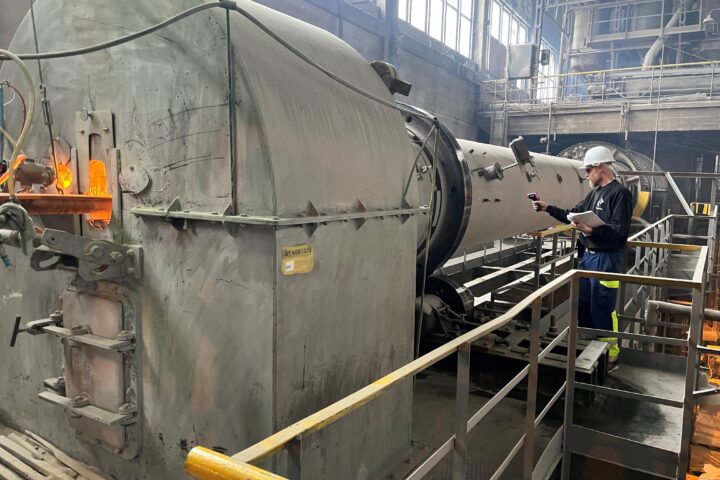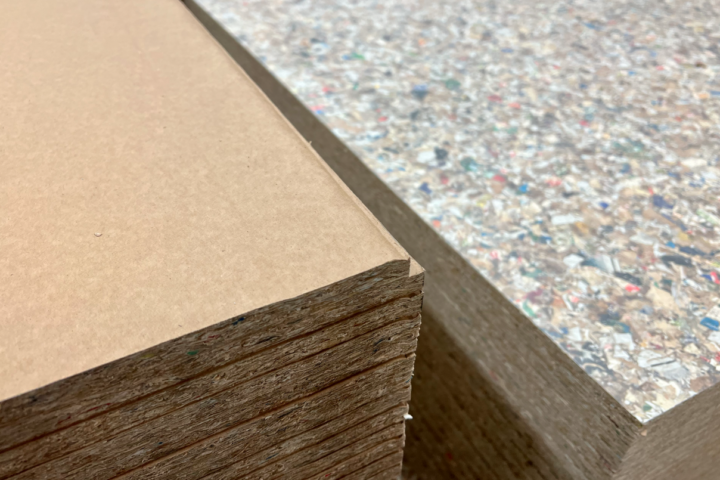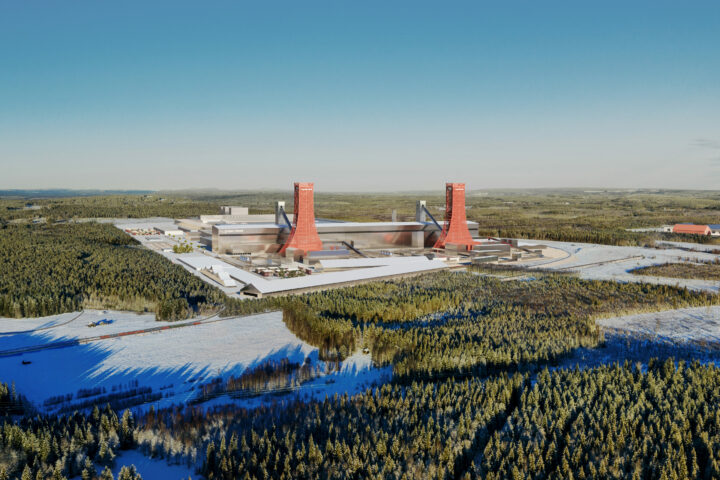Swedish industry is in the throes of a giant green transformation, and technical solutions that can reduce greenhouse gas emissions in both Sweden and elsewhere are emerging on a broad front. And this is just the beginning.
Let us put it bluntly: the sector is a top emitter, more specifically, the industry accounts for a third of all greenhouse gas emissions. This gives rise to a lot of problems but also opens up a number of opportunities: new technologies that can replace old processes and products, allowing us to significantly reduce emissions in one fell swoop.
But new technology is risky, time-consuming, and costly to develop. To ensure that this transformation will take place, the Swedish Energy Agency has been made responsible for the Industrial Leap (Sw: Industriklivet), a long-term initiative that will make it less risky for the industry to test new technology and achieve the technological leap needed for change.
–In a global comparison, the Swedish process industry is highly efficient, but to further reduce emissions it will be necessary to invest in untested technology. The Industrial Leap will function as a risk mitigator to support the industry in taking this leap, says Anna Thorsell, administrator at the Industrial Leap.
And Swedish industry has not been tardy in seizing the opportunity to test new technology designed to bring about this green transition. Today, HYBRIT, a collaboration between the steel company SSAB, the mining company LKAB and the energy company Vattenfall, is probably the most well-known of these initiatives. Together, these companies have created a process to replace the coking coal used in converting iron ore to iron with hydrogen. Full-scale production is expected to come online in 2035, but the first heavy vehicle made of fossil-free steel saw the light of day in the autumn of 2021, in a collaboration with the Swedish automotive manufacturer Volvo. That the automotive industry is involved in the transition is important on several other fronts.
– The automotive industry has an important role to play when it comes to the transition to fossil-free fuels, says Östen Ekengren, Senior Advisor at IVL Swedish Environmental Institute.
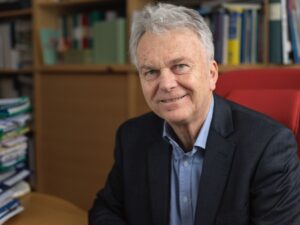
Östen Ekengren, IVL Swedish Environmental Research Institute
– Both Volvo, Volvo Cars and Scania are major exporters and when they now explore different solutions for battery operation, and above all investigate the possibility of hydrogen fuel cell-powered vehicles, this will not only be a big green change for the company but for their customers as well.
But it is not only the terrestrial vehicle fleet that needs to switch to alternative fuels – contemporary maritime traffic is also a major emitter of greenhouse gases.
– This is a complete disaster, says Östen Ekengren.
At the same time, developments in hydrogen operation open up new opportunities in this area as well. For example, the Swedish shipping company Destination Gotland has announced that it plans to switch to hydrogen operation on at least one ferry before 2030.
– Gotland already produces a significant amount of wind power today and is investigating the viability of building a large wind farm south of the island, which would benefit hydrogen gas production for ferry traffic, says Östen Ekengren.
The implementation of these changes in the Swedish automotive and shipping industries will enable us to export the solutions we have implemented here and will help us contribute to restructuring initiatives outside our borders. Today the sector is responsible for much of the problem, but the industry is traditionally also a prodigious problem solver, and this can stand it in good stead.
With the help of the Industrial Leap, many projects have already progressed from the idea stage to the real world.
– Ovako is one of the examples that I find particularly exciting, the company has invested in an electrolyzer that will produce fossil-free hydrogen in Hofors, expected to be in operation as early as 2022, says Anna Thorsell.
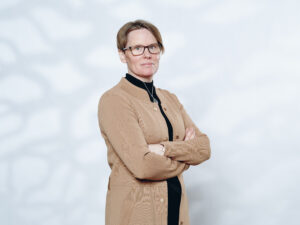
Anna Thorsell, the Swedish Energy Agency
– This will be important both for the production of fossil-free steel and will be an important part of a future hydrogen infrastructure in the region, at the same time as it can act as a stabilizer for the electricity grid.
Another example is a new methodology for recycling plastic. Previously, this has been done by mechanical means: i.e., grinding the plastic into granules which can then be reused, but this does not work for all types of plastic. To tackle this, the recycling companies Stena Recycling Fortum Waste Solutions and the polyethene manufacturer Borealis, have initiated a collaboration aimed at building Sweden’s first plant for the chemical recycling of plastics, projected to come online as early as 2024.
– The advantage of this and many other projects taking place in Sweden right now is that there is not just one individual player behind them, but the entire value chain is involved, says Anna Thorsell.
– We also see that a lot has happened in just the last five, six years. Companies today have clear goals and ambitions to restructure their operations, and in addition, there are the technical solutions available to bring this to fruition. This isn’t just talk – a lot is really happening in the field.
And even though all these solutions are taking place across the entire industry, almost all have one thing in common, they require connectivity and the ability to process huge amounts of data in real-time.
– If, for example, you need to optimize self-driving vehicles or waste management, you need a 5G connection, says Östen Ekengren.
In Sweden, Ericsson is an important player, both when it comes to delivering connectivity and as a developer of assorted sensors and similar technical solutions. Without these components in place, it will be practically impossible to bring about the green transition of industry and society.
Text: Karin Aase

